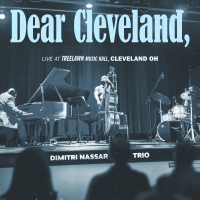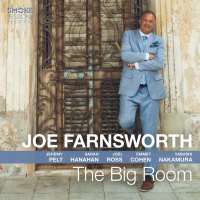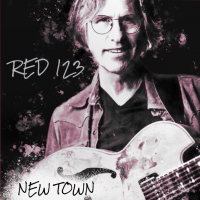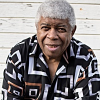Home » Jazz Articles » Larry Willis
Jazz Articles about Larry Willis
Larry Willis: The Big Push & The Powers of Two, Vol. 2

by Joel Roberts
Pianist Larry Willis has had an important and distinguished 40-year career in jazz, even if his name isn't as well known as it should be. Since making his recording debut on Jackie McLean's landmark 1965 album Right Now!, the New York-born Willis, who turns 66 this month, has played everything from free jazz to fusion to rock (he was a member of Blood, Sweat and Tears in the '70s), while performing as a valued sideman with such jazz titans as ...
Continue ReadingLarry Willis: The Big Push

by Michael P. Gladstone
Pianist Larry Willis has been on over 300 sideman sessions and led eighteen of his own albums since 1970, fifteen of them since 1989. Willis has been in involved in many sub-genres of jazz, largely in the earlier years including jazz-rock fusion and the avant-garde. He was the pianist for Blood Sweat & Tears in the early '70s, Sonny Fortune in the late '70s, and David “Fathead" Newman, Carla Bley and Nat Adderley in the '80s. His albums have appeared ...
Continue ReadingLarry Willis: Sanctuary & The Powers of Two

by Russ Musto
Larry Willis Sanctuary Mapleshade Records 2003
Larry Willis, for too long a time unjustly under-recorded as a leader, happily has found a home as Mapleshade Records' music director for the past 12 years. The Maryland-based label has afforded the veteran New Yorker a multitude of opportunities to demonstrate his imposing talents as a pianist, composer, arranger and producer, but Sanctuary is easily the best of these efforts to date. The album of spiritually motivated ...
Continue ReadingLarry Willis: Sanctuary

by Franz A. Matzner
Antediluvian of method or anachronistic of taste, dedicated purist or obdurate conservative, iconoclast or ludite, the debates surrounding Mapleshade owner, engineer, and producer Pierre Sprey will most likely never reach a definitive conclusion. Regardless of what label one chooses to apply, Mapleshade productions possess a distinct sound related directly to Sprey's dedicated traditional recording methods. Using a system of careful mike placement and recording directly to two-track analog, Sprey recreates the classic '50s era studio conditions, enabling jazz musicians to ...
Continue Reading


















